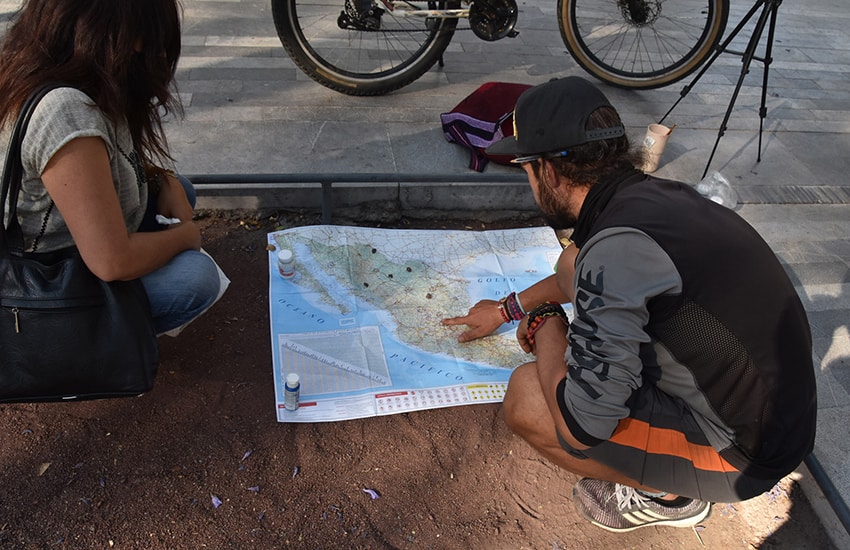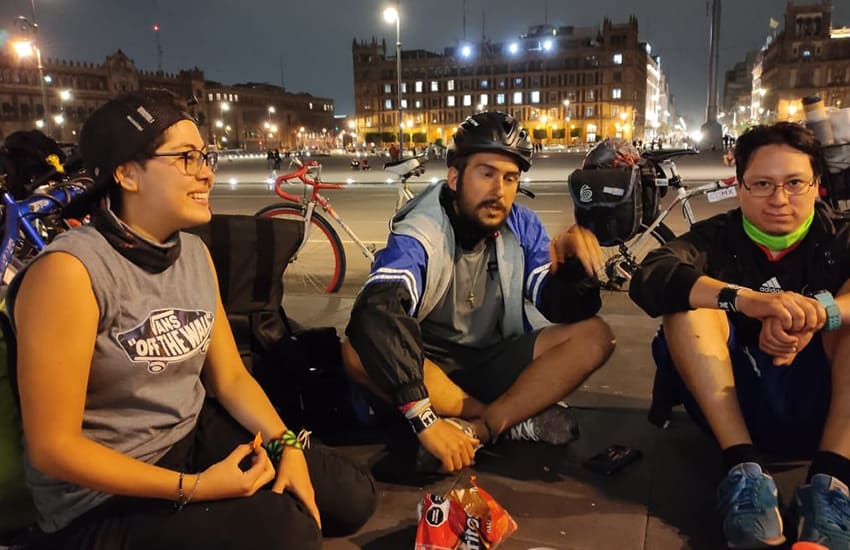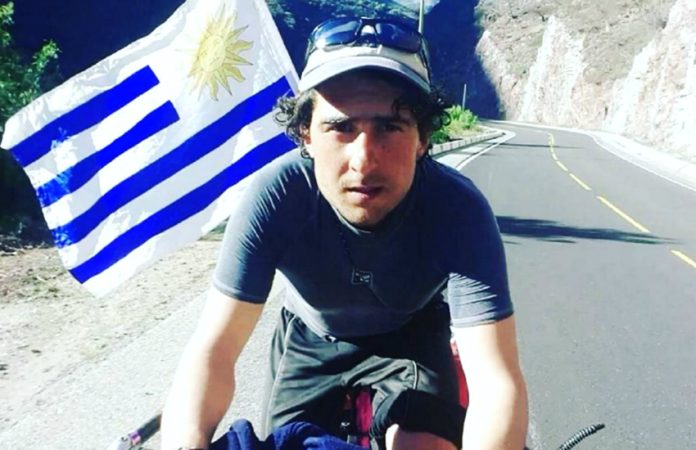When Tabaré Alonso first announced his plans to his friends, they doubted him. “They said, ‘Tabaré will be home in a month,’” he said.
He was living in José Enrique Rodó, a tiny pueblo in Soriano, Uruguay, and working in information technology.
“I was having what I would call an existential crisis,” he explained. “I worked, I bought things I did not need for no reason. I always saw the world from a screen — a computer screen or the television.
“I did not know Palenque, did not know Bolivia.” He paused and added, “What was I doing?”
So he decided he was going to make a change, one that was more than a little radical. He was going to ride a bike — alone — all the way from Uruguay to Alaska.

It really wasn’t surprising that his friends had doubts. He weighed about 260 pounds at the time that he made his plans, and he wasn’t a cyclist.
“I did not even know how to repair a bike,” he said. Yet, he was undaunted. “I wanted to live the process. I wanted to live on the road. The project is to document the Americas — all three.”
So he started pedaling from Uruguay in 2017. Fifteen countries, four years and 30,000 kilometers (18,600 miles) later, he found himself in Alemeda Park in Mexico City being peppered with questions by a writer who happened to pass by.
He arrived in Mexico City in early April.
“I was completely alone, and I slept in parks, outside [at first]. The cycling community opened doors for me,” he said. “I now have many brother cyclists in many places in Mexico City, and I’m grateful for this. Many people have opened their home to me.”
While his stay in the capital has been positive, he had challenges in other parts of the country. He had problems with police “everywhere” but was able to talk his way out of trouble. He was threatened with deportation by Mexican immigration agents.
“I have a visa to cross, but they wanted to deport me,” he said.
He was once asked for 1,000 pesos (US $50) but was let go when he showed agents the videos he was posting online. The agents then asked to take a photo with him. He had more problems in Lechería when immigration took his passport and phone and threatened to deport him until he gave them some money.
Police and immigration weren’t the only ones to give him trouble. His bike was stolen twice, once in Brazil and once in Honduras, although “the cycling community helped me get it back.”
And then there have been the internal battles and doubts to overcome.
“In the desert and in the Amazon, I had the most fear,” he said. “In Bolivia, in the salt desert, it was very cold. I almost abandoned the project, but I waited a day for the sun to come up, warmed up and continued.”
He has no set schedule, trying to take things as they come. Although he’s partly financing his trip by selling his book, there have been times when he ran out of money and was forced to stay in one place, working, as he has done throughout May in order to save money. He’s worked construction and on a fishboat to earn cash.

He’s been posting photographs and videos online and has published a book, Uruguay-Alaska: Un viaje por America en bicicleta.
Here in Mexico, he’s not taking the shortest, most direct route to reach Alaska. After Mexico City, he’ll head north to Querétaro, Guanajuato and several other states before taking a ferry to Baja California.
He figures it’ll take him about eight more months to reach the United States border, which he plans on crossing in Arizona.
There are certainly more challenges ahead for him. For example, at some point, he’ll face a winter in the U.S. Is he prepared for that?
“No,” he said simply, but apparently unconcerned. If the weather’s too bad, he said he’ll walk or wait.
He brushed off concerns about traveling during a pandemic.
“I am not afraid of the virus. I exercise, stay healthy,” he said.
He doesn’t plan on stopping when he finally does reach Alaska, which he figures will be about two years from now. His next trip will be to Russia, he’s decided, then Mongolia, China, and India.
After more than four years on the road, Alonso has learned something important about himself.
“I learned that, ‘Si, puedo’ [Yes, I can],” he said. “That if something is in my heart, I can do it. I always considered myself a failure because I never was able to complete my projects, [to achieve] my objectives. And to undertake this … to say, ‘I am going to the peak of Orizaba, I am going to Panama, I am going to Venezuela.’ Completing these stages fills the heart. If it is what you want from the heart, you can do it. That was the greatest teaching: Si, puedo.”
He also learned that having possessions isn’t what’s important in life. He has very little with him on the road—his bike, some clothes, some books and supplies in his saddlebags—but he’s happy.
“I have nothing,” he said, “but I feel rich.”

• You can contact Alonso to purchase his book via his Facebook page. You can also see videos of him all over Latin American on his YouTube channel.
Joseph Sorrentino, a writer, photographer and author of the book San Gregorio Atlapulco: Cosmvisiones and of Stinky Island Tales: Some Stories from an Italian-American Childhood, is a regular contributor to Mexico News Daily. More examples of his photographs and links to other articles may be found at www.sorrentinophotography.com He currently lives in Chipilo, Puebla.
